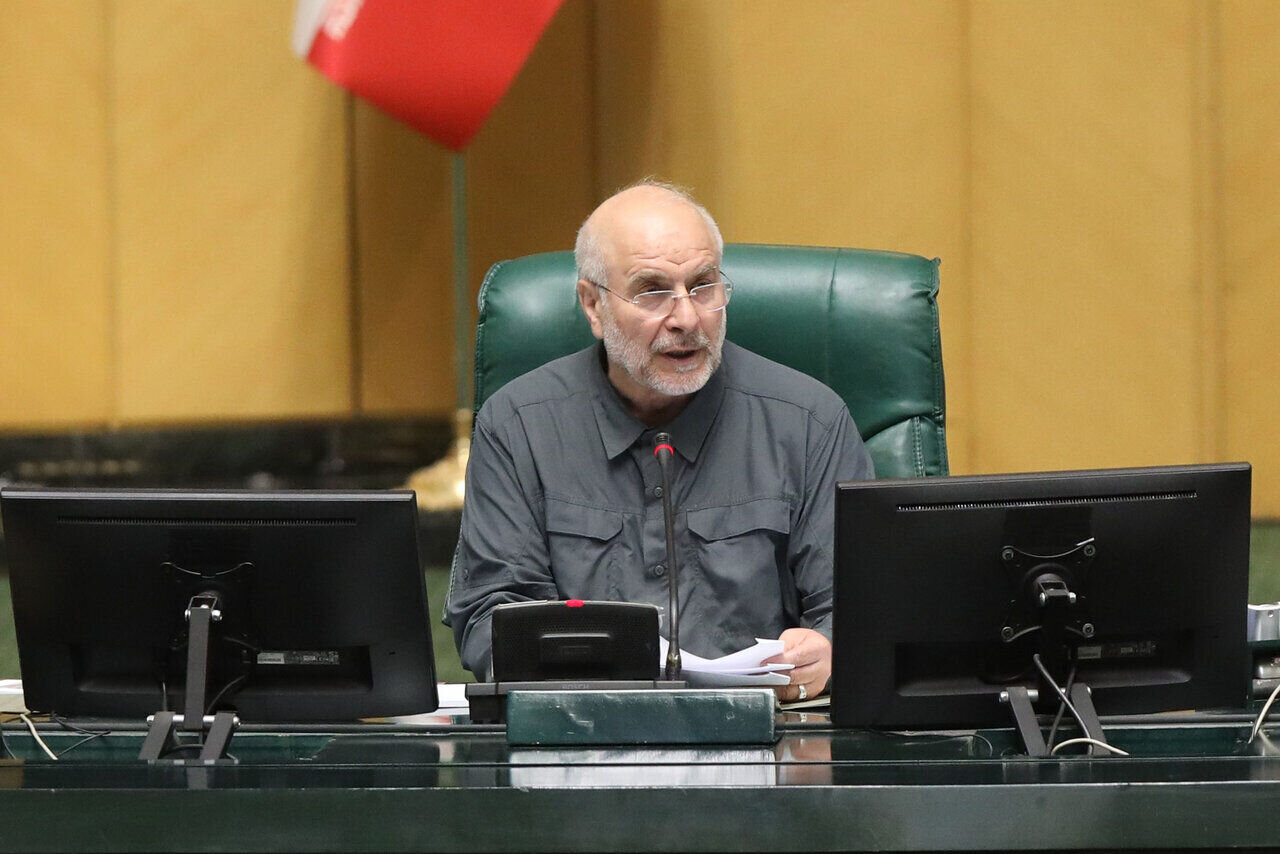Anger continues to grow over EU’s backing of UAE claims to Persian islands
Iran’s top legislator says no ‘appeasement’ over the groundless allegations

TEHRAN – After a strong-worded statement from Iran’s foreign ministry, the country’s Parliament speaker has now turned up to condemn a joint statement issued by foreign ministers of the Persian Gulf Cooperation Council (GCC) and the European Union over the three Iranian Persian Gulf islands of the Greater and Lesser Tunbs and Bu Musa.
“We categorically condemn a rehash of baseless claims over the Iranian islands of Greater and Lesser Tunbs and Abu Musa,” said Mohammadbaqer Qalibaf in an open session of Parliament. He added Iran will show no “appeasement” over the unfounded allegations.
In a statement published at the end of the 29th Joint Ministerial Meeting between the GCC and EU, the two blocs called on Iran to end what they called the “occupation” of the three Iranian islands, which belonged to Iran centuries before the UAE even existed.
Qalibaf said Iran’s territorial integrity “has been sealed and safeguarded by the blood of hundreds of thousands of this nation’s brave youth”. His words come after Foreign Ministry Spokesman Esmaeil Baghaei said the GCC-EU statement amounts to a threat to the country’s sovereignty.
Iran’s diplomatic apparatus also had its Deputy Foreign Minister Majid Takht-e Ravanchi convey the country’s strong protest to EU diplomats. He summoned ambassadors of European Union countries to Tehran to on Tuesday, a day after European and Persian Gulf officials convened in Kuwait.
During his meeting with the summoned ambassadors, Takht-e Ravanchi reaffirmed Iran’s indisputable and perpetual sovereignty over the islands of Abu Musa, Lesser Tunb, and Greater Tunb, calling them inseparable parts of the country. He said the EU’s support for the UAE’s “unfounded” claims over the islands violated the principles of national sovereignty and territorial integrity, strongly condemning the bloc’s politicized and biased stance.
The Persian Gulf islands of Abu Musa, and the Greater and Lesser Tunbs have historically been part of Iran, proof of which can be found and corroborated by countless historical, legal, and geographical documents in Iran and other parts of the world. However, the United Arab Emirates has repeatedly laid claim to the islands.
The islands fell under British control in 1921, but on November 30, 1971, a day after British forces left the region and just two days before the UAE was to become an official federation, Iran’s sovereignty over the islands was restored.
In their statement issued in Kuwait, the two blocs also made interventionist statements about Iran’s nuclear and missile programs. They “stressed the importance of ensuring the peaceful nature of the Iranian nuclear program” and accused Iran of regional escalation through its ballistic missile and drone programs.
Addressing allegations about Iran’s missile program, Takht-e Ravanchi dismissed them as interference in Iran’s internal affairs and rejected false and exaggerated narratives. He emphasized that Iran’s locally-developed defense capabilities, including its missile program, are an inherent right to self-defense and contribute to regional security and stability.
The deputy foreign minister also referred to a recent move by Britain, France, and Germany—collectively known as the E3—to return UN Security Council sanctions against Iran under the so-called snapback mechanism of the 2015 nuclear deal officially known as the Joint Comprehensive Plan of Action (JCPOA).
He said the EU, as coordinator of the JCPOA Joint Commission, had failed—along with the E3—to uphold its commitments and had instead misused the dispute resolution mechanism outlined in the agreement, thereby obstructing diplomacy. They should be held accountable for their destructive performance instead of repeating clichéd and entirely false allegations, Takht-e Ravanchi added.
The recent controversial statement is the latest in a series of escalatory measures Europe has taken against Iran in recent years. The reimposition of snapback sanctions and endorsement of the UAE's illegal claims to Iranian territory follow stringent sanctions imposed by Europeans against Iran for its refuted role in the Ukraine war. The West claims Iran has been supplying weapons to Russia for use in Ukraine, allegations Iran rejects, calling on Western states to provide evidence. To date, neither the Europeans nor their primary patron, Washington, have provided any such evidence.
